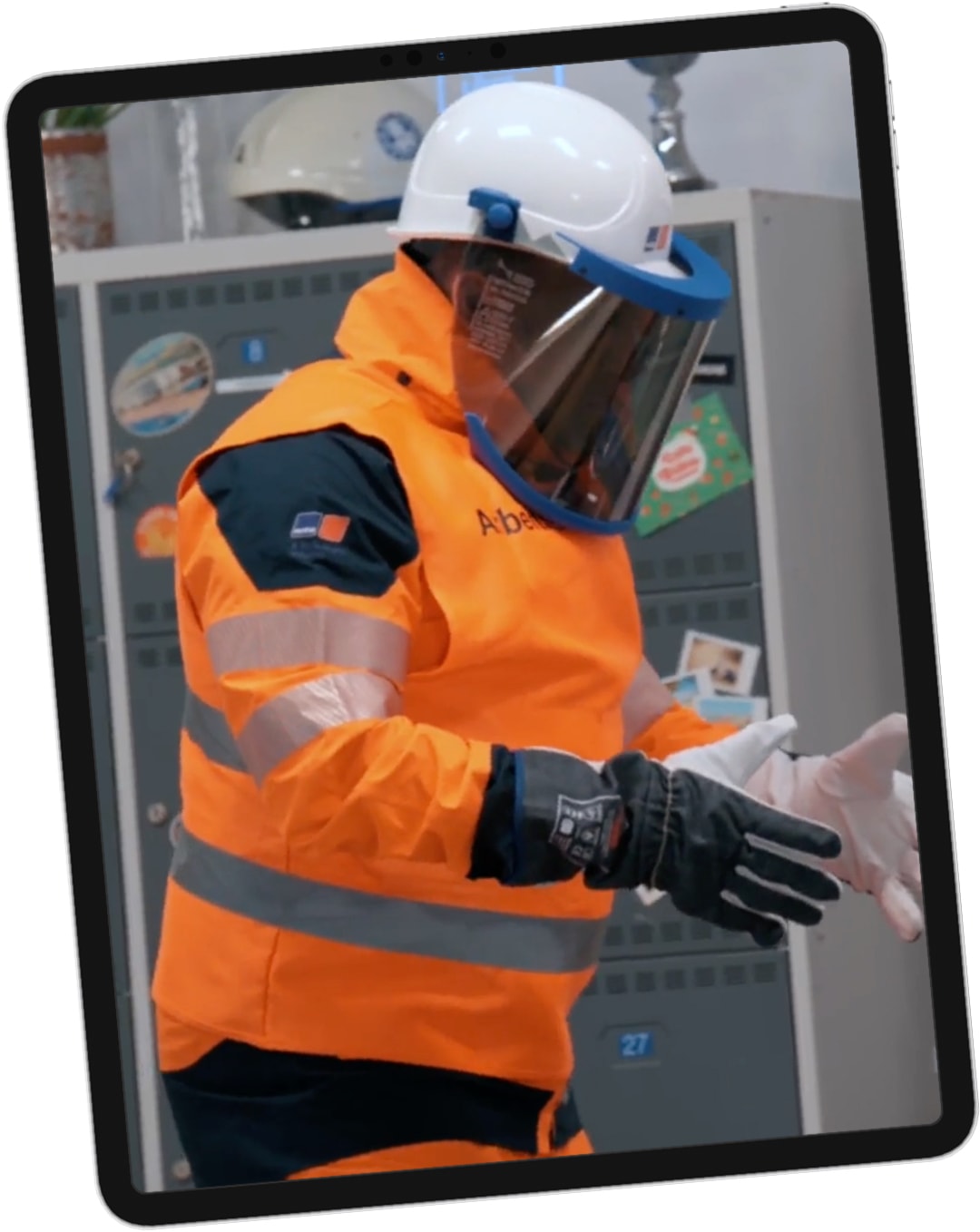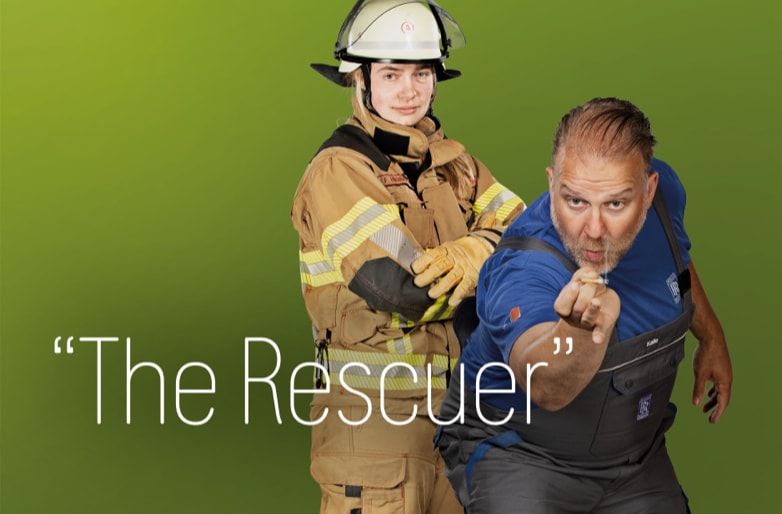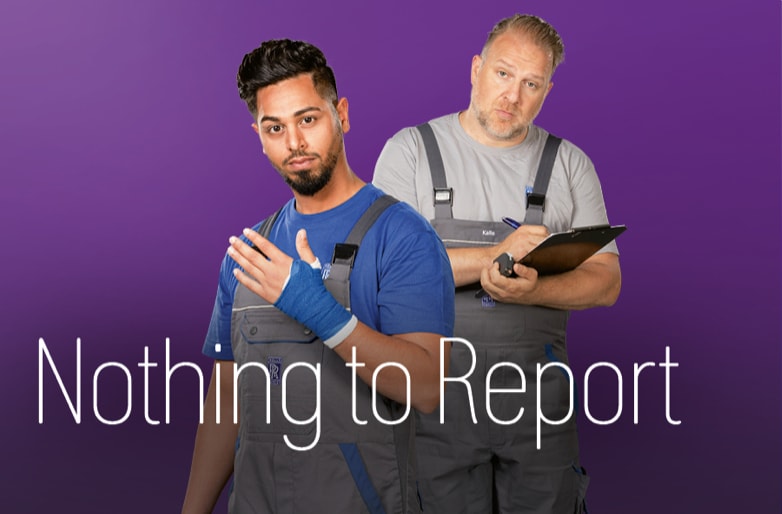Safety Bites: Lunchtime
Episode 11 – Overload!
Cell phones, fans, microwaves, pressure washers – everybody’s pestering Kalle to charge their kit and caboodle today. And poor Kalle can hardly keep up. So he starts daisy-chaining multiple outlets. But is this really a good idea, or are we in for another Big Bang?
Life On The Line
Electricity is a killer. And high voltage installations aren’t the only risk. Even low-voltage equipment can cause serious accidents.

Although the electrical equipment we use at work is generally safe these days thanks to routine inspection and maintenance, electrical accidents still remain a real possibility.
It’s worth remembering that you can help prevent such accidents by always using electrical equipment properly (check out Mo’s tips).
How to respond to an electrical accident?
First aid in case of an electrical accident
Call emergency services immediately in case of an electrical accident, and tell others about the emergency. If it’s safe and easy to do so, cut the power by switching off the equipment, flipping the breaker or simply pulling the plug. Once clear of the danger zone, start giving CPR (cardiopulmonary resuscitation) if the casualty is unconscious and not breathing, continuing until EMS responders arrive.
And please, never put yourself in danger. Stay safe, stay grounded!

Take a tip from Mo:
∙ Always follow the instructions
when using electrical equipment.
∙ Avoid leaving batteries or equipment
unattended while charging.
Use proprietary chargers.
∙ Keep moisture and dust away from chargers and
ensure good air circulation when charging.
∙ The use of personal electrical appliances
on company premises is subject to certain
restrictions. Any such equipment must be
registered and tested on a regular basis.
∙ Never work on high-voltage systems unless you are
trained and fully qualified to do so.














